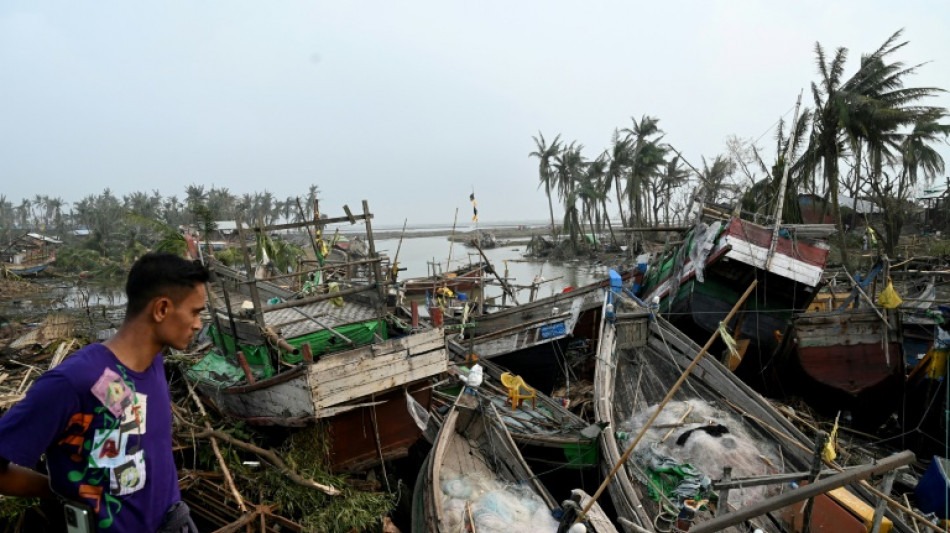
-
 Fritz battles past Zverev to reach ATP Finals title decider
Fritz battles past Zverev to reach ATP Finals title decider
-
Xi, Biden to meet as Trump return looms

-
 Kane warns England must protect team culture under new boss
Kane warns England must protect team culture under new boss
-
Italy beat Japan to reach BJK Cup semi-finals

-
 Farmers target PM Starmer in protest against new UK tax rules
Farmers target PM Starmer in protest against new UK tax rules
-
Shiffrin masters Levi slalom for 98th World Cup win

-
 Italy's Donnarumma thankful for Mbappe absence in France showdown
Italy's Donnarumma thankful for Mbappe absence in France showdown
-
McIlroy in three-way tie for Dubai lead

-
 Bagnaia wins Barcelona MotoGP sprint to take season to final race
Bagnaia wins Barcelona MotoGP sprint to take season to final race
-
Ukraine's Zelensky says wants to end war by diplomacy next year

-
 Shiffrin wins Levi slalom for 98th World Cup victory
Shiffrin wins Levi slalom for 98th World Cup victory
-
Israel pummels south Beirut as Lebanon mulls truce plan

-
 Religious Jews comfort hostages' families in Tel Aviv
Religious Jews comfort hostages' families in Tel Aviv
-
German Greens' Robert Habeck to lead bruised party into elections

-
 Johnson bags five as Australia beat Pakistan to seal T20 series
Johnson bags five as Australia beat Pakistan to seal T20 series
-
Zelensky says wants to end war by diplomacy next year

-
 Rugby Union: Wales v Australia - three talking points
Rugby Union: Wales v Australia - three talking points
-
10 newborns killed in India hospital fire

-
 Veteran Le Cam leads Vendee Globe as Sorel is first to quit
Veteran Le Cam leads Vendee Globe as Sorel is first to quit
-
Bagnaia on pole for Barcelona MotoGP, Martin fourth

-
 UN climate chief urges G20 to spur tense COP29 negotiations
UN climate chief urges G20 to spur tense COP29 negotiations
-
Rauf takes four as Pakistan hold Australia to 147-9 in 2nd T20

-
 World not listening to us, laments Kenyan climate scientist at COP29
World not listening to us, laments Kenyan climate scientist at COP29
-
Philippines warns of 'potentially catastrophic' Super Typhoon Man-yi

-
 Wales take on Australia desperate for victory to avoid unwanted record
Wales take on Australia desperate for victory to avoid unwanted record
-
Tyson beaten by Youtuber Paul in heavyweight return

-
 Taylor holds off bloodied Serrano to retain undisputed crown
Taylor holds off bloodied Serrano to retain undisputed crown
-
Japan PM expresses concern to Xi over South China Sea situation

-
 Tens of thousands flee as Super Typhoon Man-yi nears Philippines
Tens of thousands flee as Super Typhoon Man-yi nears Philippines
-
Hoilett gives Canada win in Suriname as Mexico lose to Honduras

-
 Davis, James spark Lakers over Spurs while Cavs stay perfect
Davis, James spark Lakers over Spurs while Cavs stay perfect
-
Mushroom houses for Gaza? Arab designers offer home-grown innovations

-
 Gabon votes on new constitution hailed by junta as 'turning point'
Gabon votes on new constitution hailed by junta as 'turning point'
-
Young Libyans gear up for their first ever election

-
 Vice tightens around remaining civilians in eastern Ukraine
Vice tightens around remaining civilians in eastern Ukraine
-
Dutch coalition survives political turmoil after minister's resignation

-
 Uruguay end winless run with dramatic late win over Colombia
Uruguay end winless run with dramatic late win over Colombia
-
Max potential: 10 years since a teenage Verstappen wowed in Macau

-
 Tens of thousands flee as Typhoon Man-yi nears Philippines
Tens of thousands flee as Typhoon Man-yi nears Philippines
-
Is Argentina's Milei on brink of leaving Paris climate accord?

-
 Big Bang: Trump and Musk could redefine US space strategy
Big Bang: Trump and Musk could redefine US space strategy
-
Revolution over but more protests than ever in Bangladesh

-
 Minister resigns but Dutch coalition remains in place
Minister resigns but Dutch coalition remains in place
-
Ireland won 'ugly', says relieved Farrell

-
 Stirring 'haka' dance disrupts New Zealand's parliament
Stirring 'haka' dance disrupts New Zealand's parliament
-
England's Hull grabs lead over No.1 Korda at LPGA Annika

-
 Kosovo players walk off in Romania after 'Serbia' chants, game abandoned
Kosovo players walk off in Romania after 'Serbia' chants, game abandoned
-
Kosovo players walk off in Romania game after 'Serbia' chants

-
 Lame-duck Biden tries to reassure allies as Trump looms
Lame-duck Biden tries to reassure allies as Trump looms
-
Nervy Irish edge Argentina in Test nailbiter


Early warning systems send disaster deaths plunging: UN
Weather-related disasters have surged over the past 50 years, causing swelling economic damage even as early warning systems have meant dramatically fewer deaths, the United Nations said Monday.
Extreme weather, climate and water-related events caused 11,778 reported disasters between 1970 and 2021, new figures from the UN's World Meteorological Organization (WMO) show.
Those disasters killed just over two million people and caused $4.3 trillion in economic losses.
"The most vulnerable communities unfortunately bear the brunt of weather, climate and water-related hazards," WMO chief Petteri Taalas said in a statement.
The report found that over 90 percent of reported deaths worldwide due to disasters over the 51-year-period occurred in developing countries.
But the agency also said improved early warning systems and coordinated disaster management had significantly reduced the human casualty toll.
WMO pointed out in a report issued two years ago covering disaster-linked deaths and losses between 1970 and 2019, that at the beginning of the period the world was seeing more than 50,000 such deaths each year.
By the 2010s, the disaster death toll had dropped to below 20,000 annually.
And in its update of that report, WMO said Monday that 22,608 disaster deaths were recorded globally in 2020 and 2021 combined.
- 'Early warnings save lives' -
Cyclone Mocha, which wreaked havoc in Myanmar and Bangladesh last week, exemplifies this, Taalas said.
Mocha "caused widespread devastation... impacting the poorest of the poor," he said.
But while Myanmar's junta has put the death toll from the cyclone at 145, Taalas pointed out that during similar disasters in the past, "both Myanmar and Bangladesh suffered death tolls of tens and even hundreds of thousands of people".
"Thanks to early warnings and disaster management these catastrophic mortality rates are now thankfully history. Early warnings save lives."
The UN has launched a plan to ensure all nations are covered by disaster early warning systems by the end of 2027.
Endorsing that plan figures among the top strategic priorities during a meeting of WMO's decision-making body, the World Meteorological Congress, which opens Monday.
To date, only half of countries have such systems in place.
- Surging economic losses -
WMO meanwhile warned that while deaths have plunged, the economic losses incurred when weather, climate and water extremes hit have soared.
The agency previously recorded economic losses increased sevenfold between 1970 and 2019, rising from $49 million per day during the first decade to $383 million per day in the final one.
Wealthy countries have been hardest hit by far in monetary terms.
The United States alone incurred $1.7 trillion in losses, or 39 percent of economic losses globally due to disasters since 1970.
But while the dollar figures on losses suffered in poorer nations were not particularly high, they were far higher in relation to the size of their economies, WMO noted.
Developed nations accounted for over 60 percent of losses due to weather, climate and water disasters, but in more than four-fifths of cases, the economic losses were equivalent to less than 0.1 percent of gross domestic product (GDP).
And no disasters saw reported economic losses greater than 3.5 percent of the respective GDPs.
By comparison, in seven percent of the disasters to hit the world's least developed countries, losses equivalent to more than five percent of their GDP were reported, with several disasters causing losses equivalent to nearly a third of GDP.
And for small island developing states, one fifth of disasters saw economic losses of over five percent of GDP, with some causing economic losses above 100 percent.
M.Furrer--BTB
